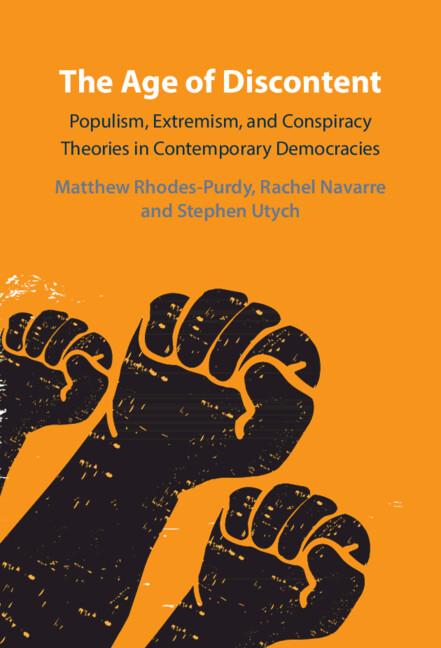Bücher versandkostenfrei*100 Tage RückgaberechtAbholung in der Wunschfiliale

Zustellung: Fr, 27.06. - Mi, 02.07.
Versand in 2 Wochen
VersandkostenfreiBestellen & in Filiale abholen:
"Economic crises since 2008 led to the rise of populist, extremist, Far Right, and conspiracy-focused movements. Emotions borne of economic crises produces cultural discontent (i.e. enflames conflicts over values and identities), an approach we call Affective Political Economy. The book studies these dynamics in Europe and the Americas"--
Inhaltsverzeichnis
1. Introduction; 2. Left behind vs. backlash: economic and cultural theories of democratic discontent; 3. Affective political economy: the economic origins of democratic discontent; 4. Affective political economy and political discontent: an experimental analysis; 5. Frozen parties, failing markets: discontent in the United States and United Kingdom; 6. Austerity, regionalism and dueling populisms in Spain; 7. Corruption, populism and contentious politics in Brazil and Chile; 8. The dogs that did not bark: how Canada, Portugal and Uruguay avoided discontent; 9. Populism in power: polarization, charismatic attachment and conspiracy theories in Trump's America; 10. Conclusions: is neoliberal democracy sustainable?
Produktdetails
Erscheinungsdatum
09. März 2023
Sprache
englisch
Seitenanzahl
300
Autor/Autorin
Rachel Navarre, Matthew Rhodes-Purdy, Stephen Utych
Verlag/Hersteller
Produktart
gebunden
Gewicht
574 g
Größe (L/B/H)
230/159/24 mm
ISBN
9781009279390
Entdecken Sie mehr
Bewertungen
0 Bewertungen
Es wurden noch keine Bewertungen abgegeben. Schreiben Sie die erste Bewertung zu "The Age of Discontent" und helfen Sie damit anderen bei der Kaufentscheidung.












